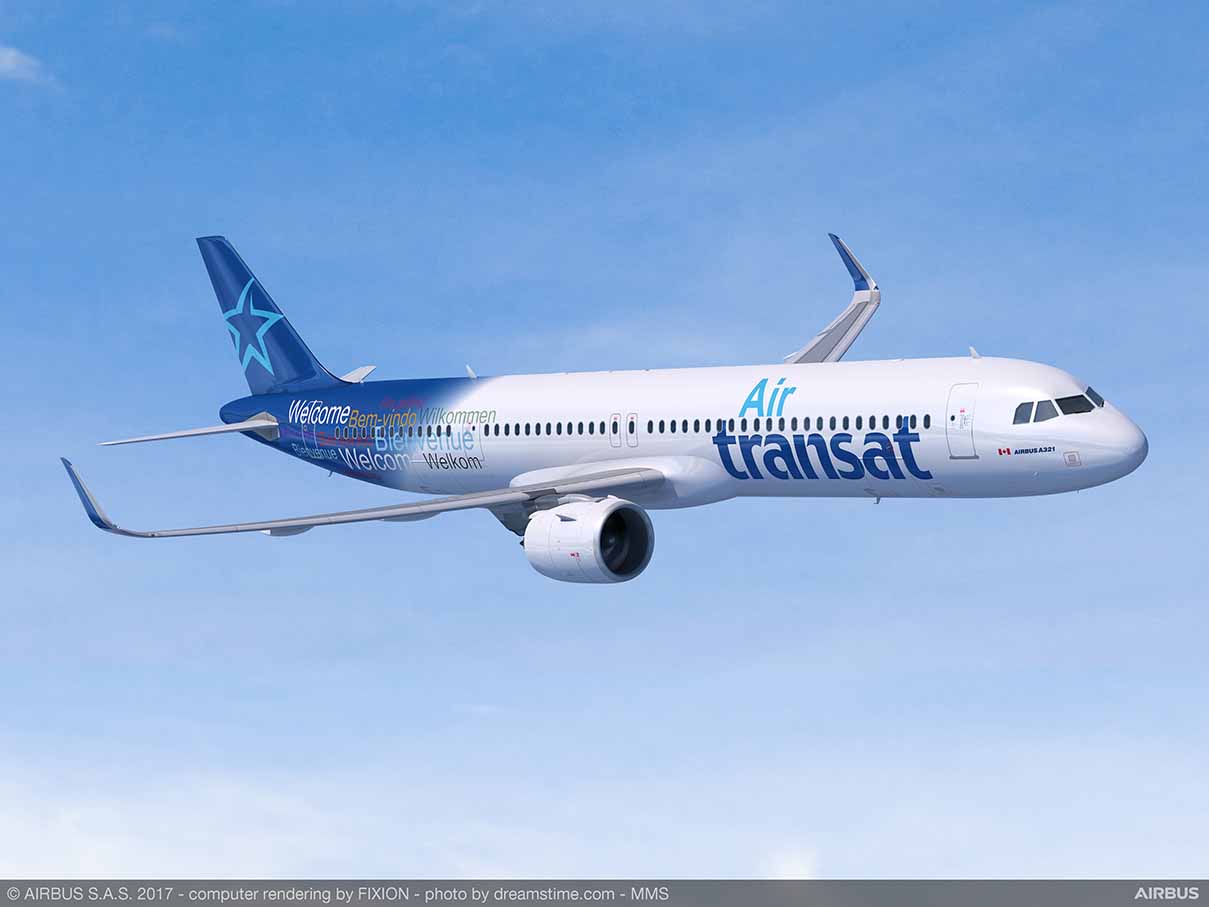
Air Canada and Transat announced they have mutually agreed to terminate the Arrangement Agreement for the proposed acquisition of Transat by Air Canada. Air Canada and Transat had originally agreed in June 2019 on the acquisition, the terms of which were subsequently amended in August 2019 and then revised in October 2020 as a result of the severe economic impact of the COVID-19 pandemic. The acquisition was conditional on the approval of various regulatory authorities, including the European Commission. It became evident that the EC will not approve the acquisition based on the currently offered remedy package.
On the face of it, this looks bad for Air Transat. As a small airline that offers sunshine flights to Canadians, and focused on its home base Montreal, the options are grim. Fellow Montreal-based Air Canada could have used and exploited this opportunity. There has been chatter about a local Montreal businessman making a run for the airline. An important wrinkle to note is that the current Quebec premier is a co-founder of Air Transat. The Montreal businessman, Pierre Karl Péladeau, may be well connected and he will need all the benefits that come with that if he thinks he can save the airline and compete with Air Canada. Sir Richard Branson loves to say the quickest way to become a millionaire in the airline business is to start off being a billionaire. The odds of Mr. Péladeau succeeding are slim, even if Quebec considers offering him some sort of help. Anything Quebec does for him could earn the wrath of Air Canada and end up in a court. The odds don’t look good.
However, there is another opportunity worth considering. That opportunity is WestJet.
To start with, we need to get the obvious Alberta/Quebec dysfunction out of the way. Francophone Quebec and Algo-Alberta are not an obvious mix. But both sides need to step back and look at the bigger picture. That bigger picture is a better one than leaving things as they are.
WestJet
This airline needs to grow its eastern Canadian footprint and Air Transat offers a once-in-a-lifetime opportunity. While Air Transat is messy – it has an odd fleet and is Montreal-centric, it does offer WestJet a leg up. That growth could be powered by the A321LR. This aircraft is really what Air Transat needs rather than its A330s. But it came too late to save the airline. Moreover, the A321LR is a hot ticket – nearly every airline wants them. WestJet could benefit by becoming more Francophone, too.
Air Transat
It is clear that the current airline won’t survive. The airline is seeking $500m in government support. In Quebec, anything that sustains jobs is seen as crucial. But whatever the province does for Air Transat will probably require some sort of quid pro quo for Air Canada. It is also noteworthy that the Canadian federal government has done close to nothing to protect its airline industry. Rather than provincial support for Air Transat, it might be better for Quebec to enable a merger with WestJet. This could protect jobs, especially highly skilled jobs, that Quebec is so focused on. It might also lower any friction with Air Canada, which is clearly a desirable outcome.
A Merger?
A WestJet takeover (call it a merger if that helps) of Air Transat allows for several pieces to fall in place. Firstly it protects Quebec jobs. WestJet is a Boeing airline and any Airbus equipment would have to be maintained in Montreal by Air Transat’s MRO. The same applies to flight crews. Second, WestJet would get a new base in Montreal from which to grow its eastern Canadian business; focusing east to Europe and south to sunshine destinations. Third, the Air Transat operation could be fed traffic from points to the west. Similarly, eastern Canadians could have access, via a competitor to Air Canada, to head west to places like Hawaii. Fourth, Air Transat customers could benefit from WestJet’s frequent flier program and its alliance with Delta Air Lines.
This is a significant amount of upside for Air Transat shareholders and customers. A combined airline would offer better competition to Air Canada, and while this helps travel consumers, it also helps Air Canada. Better to have a stronger and rational competitor than two weaker ones that might use irrational pricing.
A merged airline would come with a derisked fleet, with both Airbus and Boeing aircraft. The airline could focus on still offering Canadians the “snow goose” travel options they like. But it would also allow for better loads (and revenues) across the Atlantic because of the combined feed. The A321LRs are going to be highly effective from Montreal to EU destinations, especially secondary cities. These flights will likely see better economics than the A330s. The new airline could move its 787 and A330 widebodies to larger markets where they would be optimized, even seasonally, which has been a big business or Air Transat. Moreover, with a combined fleet, would there still be a need to bring in seasonal aircraft from the EU (SmartWings 737s)? Probably not. Moreover, 787s operations to Asia might be feasible and that would be a good growth opportunity.
There are many more details to consider, but on the face of it, Air Transat shareholders may want to consider looking beyond Montreal and Quebec for a solution. The loss of the Air Canada deal isn’t the end of the story.
Co-Founder AirInsight. My previous life includes stints at Shell South Africa, CIC Research, and PA Consulting. Got bitten by the aviation bug and ended up an Avgeek. Then the data bug got me, making me a curious Avgeek seeking data-driven logic. Also, I appreciate conversations with smart people from whom I learn so much. Summary: I am very fortunate to work with and converse with great people.






1 thought on “An Air Transat Opportunity”